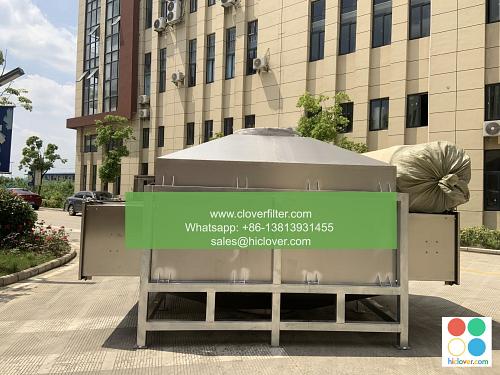The Top Air Filter Mistakes to Avoid (and How to Fix Them)

Proper indoor air quality is crucial for maintaining a healthy and comfortable living or working space. One of the most important components of achieving good air quality is the air filter. However, many people make mistakes when it comes to air filter maintenance, air filter selection, and air filter installation. In this article, we will discuss the top air filter mistakes to avoid and provide tips on how to fix them.
Mistake 1: Not Replacing Air Filters Regularly
Not replacing air filters regularly is one of the most common mistakes people make. Dirty air filters can reduce the efficiency of heating, ventilation, and air conditioning (HVAC) systems, increase energy bills, and even lead to health problems. It is essential to replace air filters every 1-3 months, depending on the filter type and usage.
To fix this mistake, make sure to check and replace your air filters regularly. You can also consider investing in a smart air filter that can monitor the filter’s condition and send alerts when it needs to be replaced.
Mistake 2: Choosing the Wrong Air Filter Type
Choosing the wrong air filter type can also lead to poor indoor air quality. There are various air filter types available, including HEPA filters, activated carbon filters, and ionic air purifiers. Each filter type has its own strengths and weaknesses, and it is essential to choose the right one for your specific needs.
For example, if you have allergies or asthma, you may want to consider a HEPA filter that can capture 99.97% of particles as small as 0.3 microns. On the other hand, if you want to remove odors and gases from the air, an activated carbon filter may be a better choice.
Mistake 3: Not Considering MERV Ratings
MERV (Minimum Efficiency Reporting Value) ratings are a measure of an air filter’s ability to capture particles of different sizes. A higher MERV rating indicates that the filter can capture smaller particles. However, a higher MERV rating also means that the filter may be more restrictive to airflow, which can increase energy bills.
To fix this mistake, make sure to consider the MERV rating when choosing an air filter. A MERV rating of 11-13 is generally recommended for most residential applications, while a MERV rating of 14-16 may be more suitable for commercial applications.
Mistake 4: Not Checking for Air Leaks
Air leaks can significantly reduce the effectiveness of an air filter. If there are gaps or cracks in the ductwork or ventilation system, unfiltered air can enter the system and bypass the filter.
To fix this mistake, make sure to check for air leaks regularly. You can use a smoke pencil or incense stick to detect air leaks in the ductwork or ventilation system. Seal any gaps or cracks with duct sealant or foam tape.
Mistake 5: Not Maintaining the HVAC System
Finally, not maintaining the HVAC system can also lead to poor indoor air quality. Regular maintenance can help ensure that the system is working efficiently and effectively.
To fix this mistake, make sure to schedule regular maintenance checks with a qualified technician. This can include cleaning the condenser coils, checking the refrigerant levels, and inspecting the ductwork for damage or leaks.
In conclusion, avoiding common air filter mistakes can help improve indoor air quality and reduce health problems. By replacing air filters regularly, choosing the right filter type, considering MERV ratings, checking for air leaks, and maintaining the HVAC system, you can ensure a healthy and comfortable living or working space. Whether you are looking for residential air filtration solutions or commercial air purification systems, there are many application areas where air filters can be used, including homes, offices, hospitals, and industrial facilities. You haven’t provided a question or topic for me to assist you with. Please provide more context or information so I can give you a helpful and accurate response. What would you like to talk about or ask?

